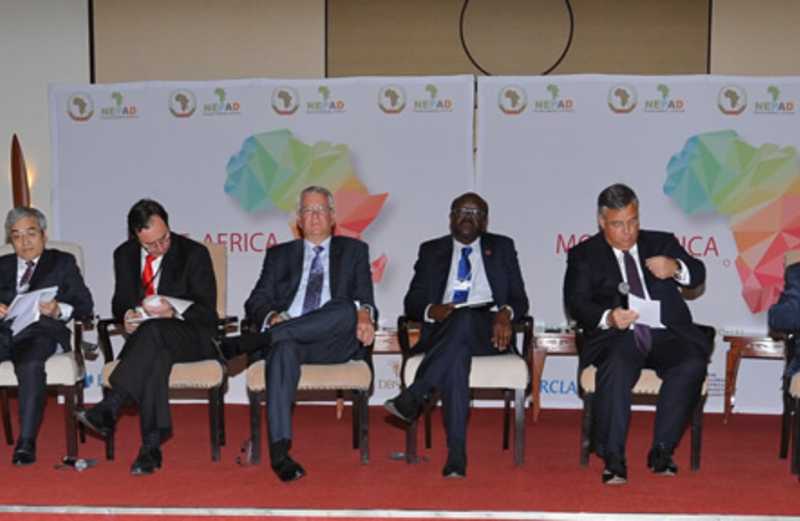NEPAD launches the MoveAfrica Initiative, to bring down hurdles to continental trade

The NEPAD Planning and Coordinating Agency (NEPAD Agency), today announced the launch of the MoveAfrica Initiative that aims to support the transformation of Africa’s trade by addressing soft issues related to cross-border transport and logistics challenges on the continent. It will focus on driving down costs and increasing efficiency for logistics companies and manufacturers in varied industries operating in Africa.
"We cannot hope for the industrialization of our continent without functional transport infrastructure. This requires not only a quantitative improvement of our infrastructure, but also a radical simplification and harmonization of regulatory conditions and procedures of business on the continent, what I would call the soft infrastructure, explains Ibrahim Assane Mayaki, CEO of the NEPAD. For instance, it is staggering that an African businessman cannot move freely across the continent. One-stop border posts could also do unprecedented good to the facilitation of movement inside Africa.”
Among the targeted soft infrastructure in particular are the laws governing cross-border transport, the regulations for crossing the border (eg. customs clearance, quarantine), and the systems and organizational resources for the operation and maintenance of “hard” infrastructure. Current estimates indicate that the volume of trade in sub-Saharan Africa will more than triple, from 102.6 million tonnes in 2009 to 384 million tonnes by 2030, if trade corridors are completed.
“Boosting intra-Africa Trade has to be addressed and there is a need for active intervention from all stakeholders which is based on a the Continental Free Trade Area that was signed in 2012," said H.E Mrs Fatima Haram Acyl, African Union Commissioner for Trade and Industry. We need to be fully engaged not only because of the signed agreement but because of the necessity to boost free trade. African Union has a customs trade facility and welcomes NEPAD’s full involvement for free trade to implement the customs standards and processes.”
Large multinationals currently have to go to extreme lengths to keep costs down when operating in Africa. One car manufacturer for instance informed they charter Airbus to move vehicles from Johannesburg to Nairobi. Another manufacturer in the soda industry says it is easier and cheaper to buy passion fruit from China, move it to Kenya, bottle it and sell it in Kenya, than it is to buy directly from next-door Uganda.
“We see the need to pay attention to the political aspects of infrastructure," said Tony O. Elumelu, Chairman of Heirs Holding and founder of the Tony Elumelu Foundation. "Our governments are trying but we can do a lot more. Transportation sector is a long-term investment and requires huge capital. So we need our governments to help the private sector with policies that encourage us to bring capital. They have a key role to play but we have to let them know that the private sector is willing to engage. This is the reason why I take the MoveAfrica Initiative very seriously.”
After its launch, the MoveAfrica Initiative will kick-off key activities such as a consolidated stakeholder annual report to rank and track the continent’s ability to move goods and services, an annual stakeholder roundtable briefing, and a consultative group of business thought leaders on improving transport and logistics in Africa. The Initiative will be conducted through the process of planning, implementation and evaluation, based on intensive dialogue among a variety of key partners from public and private sectors at the highest level.
The MoveAfrica Initiative is part of the Continental Business Network (CBN). The NEPAD Agency established the CBN as an African Union Heads of State and Government response to facilitate private sector advice and leadership in essential continent-wide infrastructure projects. CBN acts as an exclusive high-level private sector forum on Infrastructure Investment. It provides thought leadership on a range of strategic issues and is powered by high-level business people as well as public institution leaders.
